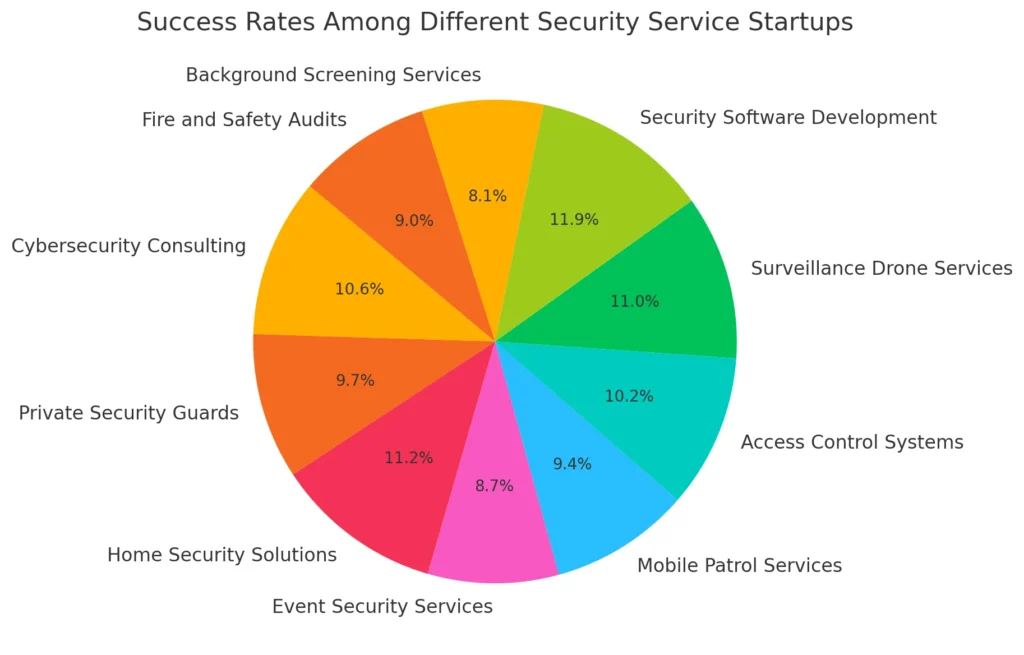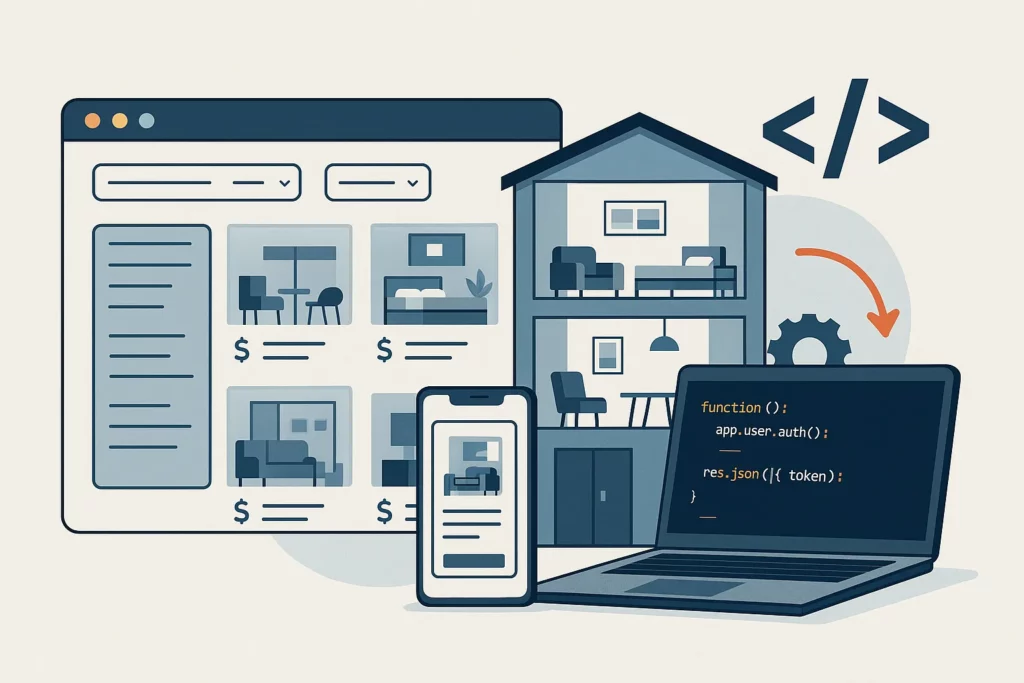In 2024, security has become a top priority for businesses and individuals alike, creating a booming demand for innovative security solutions. As technology advances, the security services industry is experiencing rapid growth, with new opportunities emerging to address both physical and digital threats. For entrepreneurs, this sector offers a wealth of potential business ideas that not only address vital safety needs but also promise lucrative returns. Whether you’re interested in cybersecurity, physical security, or a niche specialty, there are numerous ways to establish a thriving business in this expanding field. This article will explore the Ideas for Subscription Box Services Business Startups that cater to current demands and leverage industry trends.
| Metric | 2022 | 2023 | 2024 (Projected) | Growth Rate (%) |
|---|---|---|---|---|
| Global Security Market Size | $140 billion | $150 billion | $162 billion | 8% |
| Cybersecurity Market Share | $60 billion | $66 billion | $72 billion | 9% |
| Physical Security Solutions | $55 billion | $58 billion | $63 billion | 6% |
| AI & Tech Integration Rate | 35% | 42% | 50% | 15% |
| Top Demand Driver | Cyber Threat Protection | AI Surveillance Systems | Integrated Digital and Physical Security | – |
Why Choose Security Services?
The security services industry offers an exciting and rewarding path for entrepreneurs in 2025. As concerns around data breaches, physical safety, and cyber threats grow, businesses and individuals are increasingly investing in security solutions to protect their assets. This high demand, paired with technological advancements in AI, cybersecurity, and surveillance systems, has made security services one of the fastest-growing industries worldwide. For startups, this translates into a wealth of opportunities to address diverse security needs, from digital protection to on-site security measures.
Security services also provide room for specialization, allowing new businesses to carve out unique positions in the market. Whether focusing on cybersecurity for small businesses or offering advanced surveillance for large organizations, the potential customer base is vast and varied. Additionally, the integration of technology into traditional security practices opens doors for innovative solutions, giving new entrants a chance to compete effectively by leveraging AI, IoT, and cloud technologies.
Current Trends and Future Opportunities in Security Services
| Trend/Technology | Description | Impact on Security Services |
|---|---|---|
| AI-Powered Surveillance | Real-time detection and analysis of unusual behavior | Reduces human error, enables faster threat response |
| Internet of Things (IoT) | Connected devices for monitoring and data collection | Enhances real-time tracking and automation |
| Cloud-Based Security | Flexible, scalable data protection using cloud technology | Offers robust cybersecurity for businesses of all sizes |
| Machine Learning | Self-learning systems for threat detection and analysis | Improves accuracy and effectiveness of security systems |
| Smart Home Security | Remote-controlled security devices for residences | Rising demand for residential security solutions |
The security services industry is rapidly evolving, driven by technological advancements and changing security needs. Today, top trends include the integration of artificial intelligence (AI), machine learning, and the Internet of Things (IoT) to enhance security solutions. AI-powered surveillance systems are becoming standard in the industry, capable of detecting unusual behavior, identifying potential threats, and alerting security personnel in real time. These advanced systems significantly reduce human error and provide faster, more accurate responses to potential security risks.
Another major trend is the rise of cloud-based security services. With data protection and cybersecurity being top priorities, companies are increasingly adopting Ideas for IT Support and Troubleshooting Business Startups to secure sensitive information. Cloud-based security not only offers flexibility and scalability but also provides more robust protection against cyber threats, making it an attractive option for organizations of all sizes.
Future opportunities in security services lie in specialized markets. For instance, small businesses need affordable cybersecurity, while large enterprises seek integrated digital and physical security solutions. Furthermore, as home security becomes a greater concern, residential security solutions, including smart locks and remote monitoring systems, continue to gain popularity. The continued development of these technologies offers countless opportunities for new startups to enter the market and offer niche, high-demand solutions.
Top 10 Ideas for Security Services Business Startups
Starting a security services business offers multiple avenues to cater to diverse needs in today’s security-conscious world. Here are ten innovative ideas, each with its own target market, requirements, and profit potential, designed to help entrepreneurs tap into this dynamic industry.
| Security Service Idea | Startup Cost | Target Market | Profit Potential |
|---|---|---|---|
| Cybersecurity Consulting | Moderate | Small to large businesses | High |
| Private Security Guards | Moderate to High | Residential, commercial properties | Medium to High |
| Home Security Solutions | Moderate | Homeowners, residential communities | High |
| Event Security Services | Low to Moderate | Event organizers, venues | Medium |
| Mobile Patrol Services | Moderate | Businesses, gated neighborhoods | Medium |
| Access Control Systems | High | Offices, hospitals, government buildings | High |
| Surveillance Drone Services | High | Large properties, construction sites | High |
| Security Software Development | High | Individuals, businesses | Very High |
| Background Screening Services | Low | Corporate clients, schools, landlords | Medium |
| Fire and Safety Audits | Moderate | Businesses, educational institutions | Medium |
1. Cybersecurity Consulting
Help companies secure their digital assets through risk assessments, data encryption, and compliance checks.
- Target Market: Corporations, small businesses, healthcare and financial sectors
- Estimated Costs: Moderate to high (software tools, certifications)
- Startup Requirements: Cybersecurity expertise, risk assessment tools, compliance knowledge
2. Private Security Guards
Provide private security guards to secure residential and commercial properties, ideal for retail, hospitality, and event industries.
- Target Market: Retail stores, hospitality venues, events
- Estimated Costs: Moderate (staffing, training, uniforms)
- Startup Requirements: Licensed security guards, insurance, training resources
3. Home Security Solutions
Install and manage smart home security systems like alarms, smart locks, and surveillance cameras for homeowners.
- Target Market: Homeowners, residential communities
- Estimated Costs: Moderate (equipment, installation tools)
- Startup Requirements: Smart security products, installation team, technical support
4. Event Security Services
Provide security for gatherings, handling crowd control, risk assessments, and emergency response.
- Target Market: Event planners, sports venues, private parties
- Estimated Costs: Low to moderate (staffing, safety equipment)
- Startup Requirements: Trained security personnel, communication tools, risk management skills
5. Mobile Patrol Services
Offer regular property inspections for businesses and residential communities, an affordable security option for high-risk areas.
- Target Market: Businesses, gated communities, high-risk areas
- Estimated Costs: Moderate (vehicles, equipment)
- Startup Requirements: Patrolling vehicles, trained patrol officers, communication devices
6. Access Control Systems
Install and manage access control systems to regulate entry into buildings and restricted areas.
- Target Market: Offices, hospitals, government buildings
- Estimated Costs: Moderate to high (hardware, software)
- Startup Requirements: Access control equipment, installation team, tech support
7. Surveillance Drone Services
Provide high-tech surveillance with drones to monitor large properties, construction sites, and remote areas.
- Target Market: Construction sites, large properties, industries with vast operational areas
- Estimated Costs: High (drone equipment, licensing)
- Startup Requirements: Drones with surveillance capabilities, licensed operators, monitoring software
8. Security Software Development
Develop software like antivirus programs or secure communication apps for businesses and individuals.
- Target Market: Businesses, individual users, IT firms
- Estimated Costs: High (development tools, licensing)
- Startup Requirements: Software development skills, cybersecurity expertise, data encryption tools
9. Background Screening Services
Offer background checks for employees, contractors, and vendors to corporate clients, schools, and landlords.
- Target Market: Corporations, schools, property management
- Estimated Costs: Moderate (screening tools, compliance certifications)
- Startup Requirements: Background check software, compliance knowledge, secure data handling
10. Fire and Safety Audits
Conduct fire safety and prevention audits, helping companies comply with safety standards and minimize risks.
- Target Market: Commercial buildings, factories, educational institutions
- Estimated Costs: Moderate (inspection tools, certifications)
- Startup Requirements: Fire safety expertise, inspection tools, fire prevention knowledge
Real-World Examples
Real-world examples of successful security startups provide valuable insights into what works in the industry, as well as the challenges they overcame. For instance, several companies have pioneered innovative solutions in cybersecurity, helping small businesses safeguard sensitive data without needing extensive resources. These companies began by identifying gaps in affordable digital protection, creating scalable solutions that have become widely adopted by businesses across various industries.

Similarly, mobile patrol services and drone surveillance startups have addressed the need for flexible, cost-effective property monitoring. By offering specialized security packages to industrial sites, construction companies, and residential communities, these startups have created reliable sources of revenue. They’ve managed to leverage advanced technology, such as AI-powered drones, to gain a competitive edge in the market.
These case studies highlight that successful security startups tend to specialize in high-demand areas, embrace technology, and prioritize client needs. They’ve set a model for new entrants, showing how adaptability and a focused approach can lead to sustainable growth in the security industry.
Mistakes to Avoid When Starting a Security Services Business
| Common Mistake | Description | Preventive Measure |
|---|---|---|
| Underestimating Startup Costs | Not accounting for equipment, licensing, and training costs | Create a realistic budget with extra for unforeseen costs |
| Neglecting Market Research | Failing to understand the specific needs of different clients | Conduct thorough market research before launching |
| Ignoring Legal Requirements | Overlooking required licenses and regulations | Ensure compliance with all legal and licensing standards |
| Lack of Technology Adoption | Not using latest technologies to improve service quality | Invest in technology like AI, drones, and cloud services |
| Poor Customer Service Focus | Not addressing client needs and feedback | Build customer relationships and maintain open communication |
Starting a security services business comes with unique challenges, and avoiding common pitfalls can increase the chances of success. One of the most frequent mistakes new business owners make is underestimating startup costs. Security services often require specialized equipment, licensing, and well-trained personnel, all of which add to expenses. Planning a realistic budget that accounts for these costs, along with some cushion for unforeseen expenses, is essential.
Another common error is neglecting to research the target market thoroughly. Security needs vary significantly across sectors; what works for a corporate client may not appeal to residential customers. Conducting thorough market research helps tailor services to meet specific client requirements, ensuring better customer satisfaction and loyalty.
Additionally, overlooking legal requirements can be a costly mistake. Security businesses, particularly those involving surveillance or private security, must adhere to regulations and licensing standards. Ensuring compliance from the start helps avoid potential legal issues that could damage the company’s reputation and incur fines.
Lastly, some startups fail by not embracing technology. The security industry is rapidly evolving with advancements in AI, drones, and cloud-based services. Incorporating these technologies enhances service quality and gives businesses a competitive edge, making it essential for long-term success.
Why Trust Miracuves Solutions for Your Next Project?
Choosing the right partner for your security services project can make a significant difference in achieving lasting success. Miracuves Solutions stands out as a trusted ally for security startups, offering tailored solutions that meet the unique demands of this industry. With a deep understanding of technology-driven security needs, Miracuves Solutions specializes in app development, digital integration, and advanced tech solutions that give businesses a competitive edge.
Miracuves Solutions has a proven track record of delivering projects that prioritize quality, reliability, and innovation. The team focuses on creating customized applications that enhance security services, from secure data management systems to real-time surveillance platforms. Each project is handled with precision and care, ensuring a seamless user experience and optimal performance.
Partnering with Miracuves Solutions means having access to expert guidance throughout your journey. The team not only supports startups during development but also offers insights to help businesses stay ahead in a rapidly evolving security landscape. With client satisfaction as a core value, Miracuves Solutions is committed to empowering your success every step of the way.
Conclusion
The security services industry in 2024 offers abundant opportunities for new entrepreneurs to make an impact. By selecting the right niche, staying informed about current trends, and avoiding common mistakes, a startup in this field can achieve long-term success. Whether it’s cybersecurity consulting, event security, or innovative tech solutions like drone surveillance, each option provides unique ways to meet the rising demand for safety and protection.
Starting a security business requires not only a keen understanding of industry needs but also the right resources and guidance. By leveraging the insights from this article, aspiring business owners can confidently take the first steps toward building a security service that meets today’s challenges and tomorrow’s expectations.
FAQs
What is the best security service business to start with low investment?
A background screening service or mobile patrol service are excellent low-investment options, offering high demand with minimal startup costs.
Do I need a license to start a security services business?
Yes, most security services require specific licenses or certifications depending on the type of service and location, so be sure to check local requirements.
How profitable is a security services business?
Security businesses can be highly profitable due to the consistent demand across sectors. Profit potential varies based on specialization, market demand, and operational scale.
Which technology trends are essential for a security startup?
Trends like AI, IoT, and cloud-based security are essential, as they enhance service quality and give businesses a competitive advantage in today’s market.
How can I attract clients to my security services business?
Networking, online marketing, and showcasing your expertise through testimonials and certifications can help build trust and attract clients.







